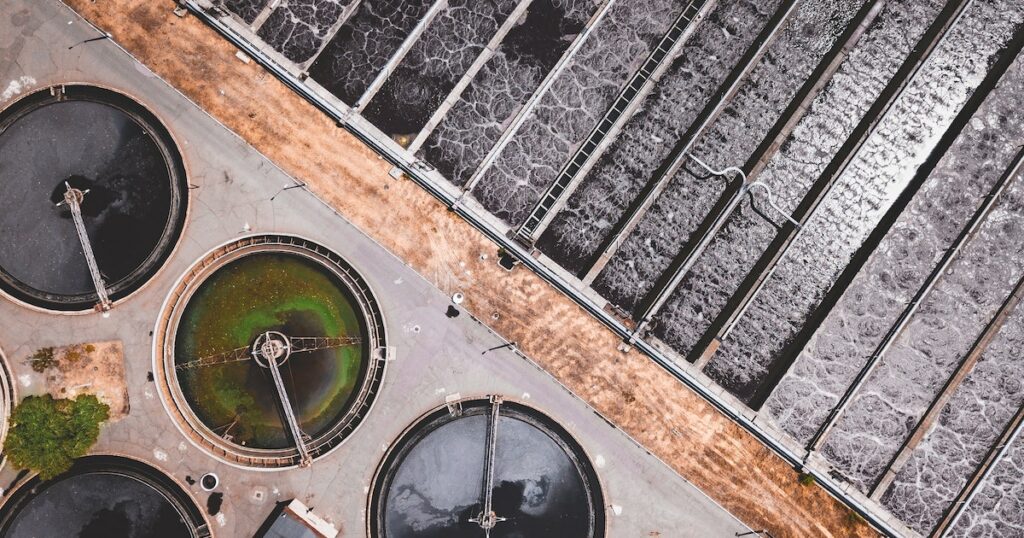An Almost Perfect Home
On paper, the home we had rented sight-unseen was perfect. It had the appropriate number of bedrooms and bathrooms for a family our size. It had a privacy-fenced backyard for our dog. It had an open floor plan with eat-in kitchen, fireplace and granite countertops.
The neighborhood seemed ideal, too. Two blocks in one direction was a community pool and sport court. Two blocks in another direction was a small lake filled with ducks, geese and fish. Two blocks in a third direction was a large city park with ball fields and a playground. The house was ten minutes from my husband’s office and barely a mile from the Atlantic Ocean. On top of everything else, the price was very right.
I stepped out onto the back patio with my morning coffee and almost gagged. Putrid air surrounded me.
We should have been happy there. Throughout our first day, I kept walking around saying, with audible relief, “This will work. I think this will actually work.”
It was on the second or perhaps the third day that the wind changed, and things turned sour. I stepped out onto the back patio with my morning coffee and almost gagged. Putrid air surrounded me.
“Do you smell that? What is that stench? I know there are some tidal swamps near here, but this … this is bad.”
Later that week, when an afternoon run took me behind the big city park two blocks from our house, I nosed out the true source of the foul odor. There, not half a mile from my front door, stood the Hampton Roads Sanitation District’s Atlantic Treatment Plant, final destination for sewage waste from roughly half a million homes in the greater Virginia Beach metropolitan area.
“Oh,” I said, gasping for air as I sprinted by the massive facility. “It wasn’t a swamp.”
Location, Location, Location
Realtors will tell you that much of a home’s value depends on one immutable factor: location, location, location. Get the location of a property wrong, and all the high-end finishes and lifestyle amenities in the world can’t make things right.
If you ever sign a one-year lease for an ideal property that just happens to be located downwind from a sewage treatment plant, granite countertops won’t do a thing to fix the problem.
On the good days — when the skies are clear and the wind is favorable — you may try to convince yourself that it’s not so bad. “Think of the commute! The pool! The beach!”
But when the bad days come — when the wind shifts and a dense bank of humid air settles in, leaving the scent of an ill-used outhouse hanging so thickly in the air you can almost taste it — there’s no pretending. You’re in a bad place.
What will it profit?
A year is a long time to live in a bad place. Over the long, smelly months, our reckless folly in choosing a rental home gave me ample opportunity to reflect on the spiritual lessons waiting to be unearthed from our unique and hopefully never-to-be-repeated housing experience.
I thought of Jesus’ teaching in Matthew 15: “For out of the heart come evil thoughts, murder, adultery, sexual immorality, theft, false witness, slander. These are what defile a person” (v. 18–20).
As foul as raw sewage is, it’s nowhere near as offensive to God as a sinful heart. If our gifts and good deeds are “a fragrant offering, a sacrifice acceptable and pleasing to God” (Phil. 4:18), what must our sins smell like in His righteous nostrils? And how much must our Savior love us to have willingly taken on flesh and tabernacled with us in the cesspit of our sinful brokenness?
I thought of Jesus’ parable from the Sermon on the Mount: “Everyone who hears these words of mine and does not do them will be like a foolish man who built his house on the sand. And the rain fell, the floods came, and the winds blew and beat against that house, and it fell, and great was the fall of it” (Matt. 7:26–27).
A house may be strong and sturdy. It may even offer easy beach access. But if it’s built in the wrong place, on a foundation of sand (or, in this case, sewage), it’s all for naught.
I thought, too, of Christ’s question in Matthew 16: “For what will it profit a man if he gains the whole world and forfeits his soul? Or what shall a man give in return for his soul?” (v. 26)
Loosely paraphrased, this might also read: “For what will if profit a woman if she gains granite countertops and neighborhood pools and yet breathes in sewage every time she opens a window? Not worth it!”
Long-term Repentance
Mostly, though, I thought about how much I wanted to get away, how long and complicated my escape was going to be — and how much the whole experience reminded me of the repentant Christian life.
We like to think of repentance as a split-second process. One minute you’re unrepentant; the next, you’re repentant. One minute you’re basking in worldly pleasure and success; the next, you’ve completely lost your taste for it and feel only shame and regret. One minute, your heart is turned in one direction; the next, it’s turned in a completely different one.
“I want to do better” is the hard part of repentance.
It’s true: God can and does change hearts in an instant. (See Acts 9.) And there are certainly times when He gives us grace to go “cold turkey” on particular sins.
But often repentance turns out to be a lot more complicated than this. Regretting a bad decision is one thing. But what happens when you wake up to the scent of sewage and realize you still have 362 days left on your lease and no legal grounds for breaking it?
Real life parallels abound. Think of the woman in a long-term cohabiting relationship with her unbelieving boyfriend. Think of the man whose six-figure job requires him to cheat, lie and otherwise violate God’s will daily. Think of the young person whose life has slowly spiraled out of control and into the death trap of addiction. In situations like this, they may have built an entire way of life atop a single sin. Repentance may involve not just feeling sorry but also finding a new home, giving up a steady income or enduring the agonies of withdrawal. Contrition may be the beginning of repentance; it isn’t necessarily the end.
Slow Motion About-Face
Acknowledging our sin is a key part of repentance, but it isn’t the only part. Luther makes this clear in the Small Catechism, where his sample confession ends with these words: “I am sorry for all this and I ask for grace; I want to do better” (emphasis mine). Desiring to make a change and turn away from sin is thus an essential part of repentance — albeit one that, for many penitents, often turns out to be little more than a pipe dream.
“I want to do better” is the hard part of repentance. It’s the difference between holding your nose while you complain about the sewage smell and actually boxing up your dishes and renting a moving truck. It involves time and work, humility and courage, persistent focus, stubborn grit and a desperate reliance daily on the Word and Spirit of God.
Yet this is the repentant life to which Luther and the apostles call us.
“When our Lord and Master Jesus Christ said, ‘Repent’ (Mt 4:17),” Luther declares in his 95 Theses, “he willed the entire life of believers to be one of repentance.”
Paul writes in Romans 12:2, “Do not be conformed to this world, but be transformed by the renewal of your mind.”
James says, similarly, “Therefore put away all filthiness and rampant wickedness and receive with meekness the implanted word, which is able to save your souls” (James 1:21).
The Lord of Creation has redeemed us, giving His own blood as a precious ransom for our souls. He wants only good things for us. Even if our sin-soaked shortsightedness lands us in a crumbling mansion by the sewage plant, He will not leave us there. It may not happen as quickly as we would like; it may also involve hard drudgery and tough decisions (labors of love that the Holy Spirit delights to work in our lives). But He will save us.
What is not in keeping with His will is for us to wake up to the scent of the world’s sewage every day, shrug our shoulders, and say, “Oh, well. What can you do? At least the cabinets are high end.”
Rather, “let us also lay aside every weight, and sin which clings so closely, and let us run with endurance the race that is set before us, looking to Jesus, the founder and perfecter of our faith, who for the joy that was set before him endured the cross, despising the shame, and is seated at the right hand of the throne of God” (Heb. 12:1–2).






What is this?
I can leave comments on an article related to sewage (something modern society generally relies on, especially up and down the Colorado River so that we have the ability to waste water on lawns and to overgrow are severely subsidized crops) but not on the main article about being “CHASTE”?
This is an example of using man’s law and technology in order to pervert the spiritual world. “Stewing and Brewing” as Luther says. Forcing people to comment in one place and not in another. This is a Catholic mindset / process, stop it – right now.
Super not Lutheran.
Can I get a Witness, a real one?!
Scott, We are unsure what this comment refers to. All of the full articles on our site have comments open. Our print feature for the month on chastity (https://witness.lcms.org/2024/beyond-purity/) has an open comment section like all our other articles. The article you are commenting on is from August 2020.